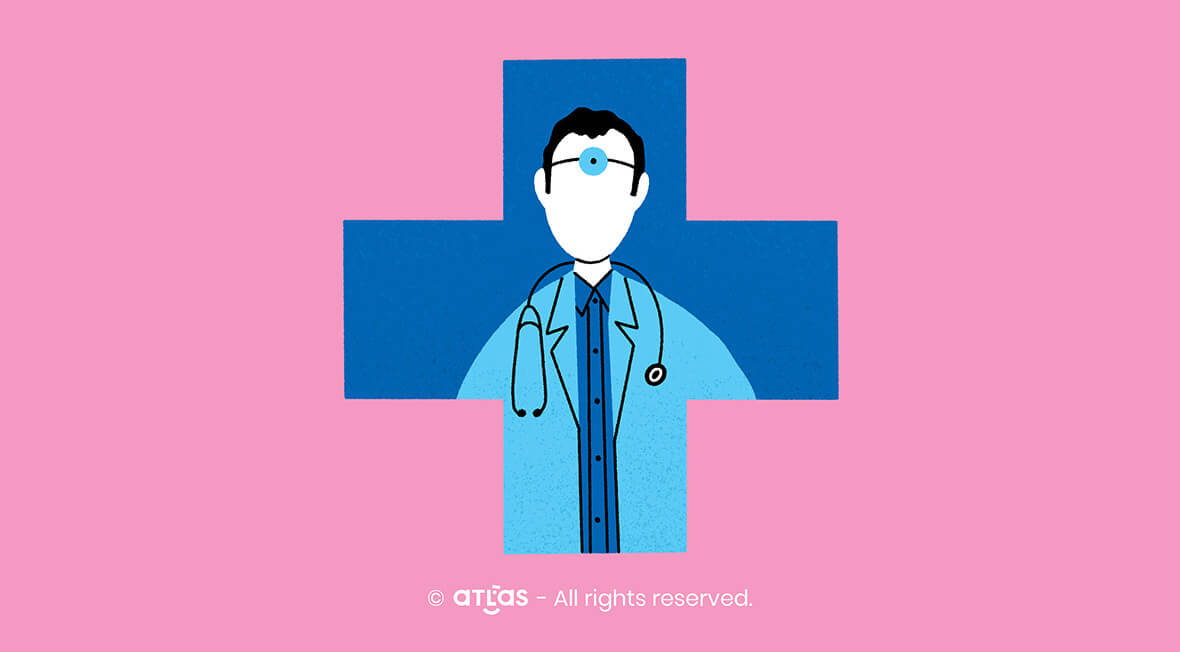More and more health decisions are coming up, it’s good to keep, improve, reformulate, and if the gift for you or your loved ones in the new year is called HPV Vaccine, we want you to have all the details at your fingertips. Print them and take them with you as a resolution … for you, maybe for a friend, for your daughter at the beginning of sex life, for your niece.
Free HPV vaccination or not? Who is vaccinated and what types of vaccines have been approved by 2020 in Romania? Make your own decisions, but stay informed through ATLAS and the gynecology specialist Dr Diana- Maria Bodean.
HPV, Human Papillomavirus, is a virus responsible for the development of cancer lesions in the anogenital region, conditions that start slowly and most often without symptoms. It has many roots, but of these those with the highest oncogene risk are strains 16 and 18. HPV can affect both women and men.
Mechanism of action of the HPV vaccine
The HPV vaccine works by immunizing the body in the face of a possible HPV infection and contains virus-like particles that cannot cause infections or disease, but which stimulate the immune system to produce antibodies against proteins on the surface of the virus and thus the body will recognize it immediately and create a protective barrier.
Who is also addressed how to administer
In Romania, 3 HPV vaccines are approved and registered:
- A type with 2 strains: 16 and 18
- A type with 4 strains: 6, 11, 16 and 18
- A type with 9 strains: 6, 11, 16, 18, 31, 33, 45, 52 and 58
All three vaccines contain strain 16 and 18 (the most aggressive strains).
The bivalent, tetravalent and non-valent HPV vaccine is given intramuscularly, preferably in the shoulder or thigh, in 2 or 3 doses, to young women between 9 and 26 years of age, but can be done later, on doctor’s recommendation. It is important that all doses are administered within one year, with a break of at least one month between the first and second doses and at least three months between the second and third doses.
Once the HPV vaccination scheme was followed, studies showed 100 % protection up to 5 years after vaccination, with further effectiveness research still ongoing.
The HPV vaccine protects against strains 6, 11, 16, 18, 31, 33, 45, 52 and 58 considered the most dangerous.
The HPV vaccine is not given to pregnant women and is not associated with infertility or sterility.
Do not take it in case of severe fever, but in case of mild infection (such as cold), with a low fever, vaccination is allowed
Women who are already infected with some HPV strains or have cervical cell changes should also be vaccinated as the vaccine may protect against strains with which the woman is not yet infected.
It is important to note, however, that the vaccine does not treat an existing infection but protects against other carcinogenic strains and the maximum benefit is obtained in girls who are vaccinated before starting their sex life.
Investigations needed to administer HPV vaccine
The only tests that can detect the presence of the papillomavirus in the body are the HPV test and the Babes Papanicolau test, the latter being effective by highlighting cervical cytological changes given by HPV and is recommended to be done with an annual frequency. Colposcopy and cervical biopsy may also provide additional information about the existence of HPV in the body.
Safety of HPV vaccine
Since the first HPV vaccine was approved, millions of people have been vaccinated.
The following very common side effects (occur in ≥1/10 patients) and frequent (occur in ≥1/100 and <1/10 patients) were observed:
- headache (headache)
- erythema, pain, edema at the injection site
- nausea
- pain in the extremities
- fever
- hematoma or pruritus at the injection site
These side effects are nonspecific and some indicate activation of the immune system (e.g. fever).
HPV vaccination campaign run by the Romanian Ministry of Health
Free HPV vaccination started in January 2020
The Ministry of Health has started the HPV vaccination campaign which is preceded by a public information and awareness campaign on the danger posed by HPV and the protection provided by the vaccine, as well as to support doctors and pharmacists in transmitting clear and accurate information about vaccination against HPV virus carried out by the vaccine provider.
Free vaccination is done from January of this year in MF office in girls aged 11 to 14 who applied in 2017 and 2018 to vaccination at family doctors, including those who have passed this age if they have applied.
Whether you want more details about HPV vaccination or want to talk to a gynecologist, we’re waiting for you online, no matter what, so you can decide what’s best for you.
